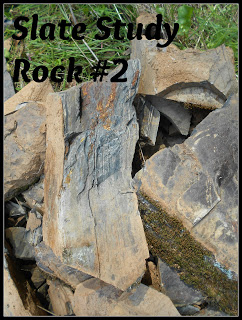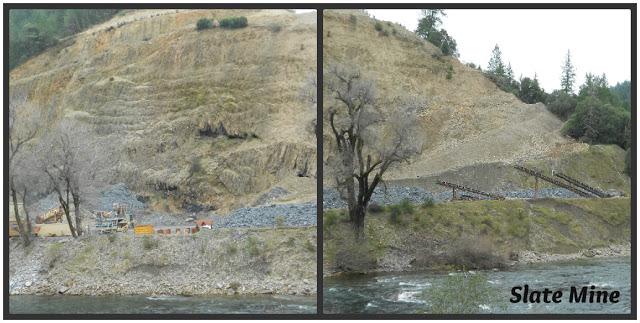Slate is a natural part of our landscape and it turns out after a little research that at the beginning of the 20th century, our county had one of the biggest slate mining trades in the whole United States. There are slate mines just a short way from our house and I never even knew it. I had seen the quarry but it did not occur to me that it was a slate mine. Turns out that on our side of the river they have started mining slate again.
Once upon a time they had an elaborate cable car system to get the slate from one side of the canyon to the other…I had heard about the cable crossings but I guess I never had put much thought into what they actually carried across on the cables. It wasn’t until this year’s rock challenges that I even put it all together.
One of the little mountain towns used to be called Slatington and it was called that because they made slate shingles. I never knew.
After last month’s study of shale, we were on the lookout for some samples of slate to collect. It didn’t take much effort since we now knew to look for the layers and then to test the rock’s hardness. If it broke easily, it was shale. If it was hard and wouldn’t easily break, it was slate.
We found this wonderful specimen on our regular hiking trail.
I think what was confusing me was that I thought that shale had to be black….turns out that is not the case. Our shale can be black, brown, reddish…or in between. It is the texture and fissure qualities that make slate easy to identify.
This is our second official rock from the list which we pulled from the book Rocks, Fossils and Arrowheads (Take-Along Guides). I am attempting to find and collect as many of the rocks from the book as possible during 2013: Rock Update.




